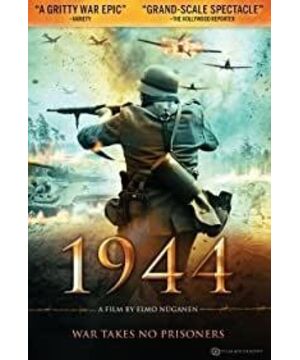Salute to all those who fought and died for independence.
If I can see you again, I will tell you all the truth, starting from the beginning, I am actually Yuri Yogi, a soldier of the Red Army, the one who killed your brother, I have never had the courage to tell you personally, And in my world right now, there is only you.
Please forgive me if you can.
Estonia entered the Best Foreign Language Film at the 88th Academy Awards, but it was not a finalist.
The film was released in July 1944 at the Tannenberg Line in Estonia, where Estonian soldiers of the Waffen SS were fighting the advancing Red Army. A visit by a Nazi official who distributed autographed photos of Hitler drew ridicule. The Soviet army was superior in tank and infantry numbers, while the German army had to retreat through the flow of civilian refugees. After a fierce battle, the victors were the Estonian troops of the Red Army. While they were burying the dead on both sides in mass graves, a Red Army Estonian named Yuri searched the body of an Estonian named Karl in the German army and found a letter in Tallinn that had not been sent to Karl A letter from sister Aino. After the Russians captured the city, he personally delivered letters, and he and Aino became friendly, which led to the hostility of political officials in his unit. Fighting back on the Sõrve peninsula In November, his forces captured a group of 16-year-old Estonian boys in German uniforms. Political officials ordered Jüri to kill them all, and when he questioned the decision, shot Jüri. Seconds later, the officer himself was executed by one of Yuri's comrades. On Jüri's body, a comrade found a letter not addressed to Aino, which he delivered himself when he was on leave.
View more about 1944 reviews











